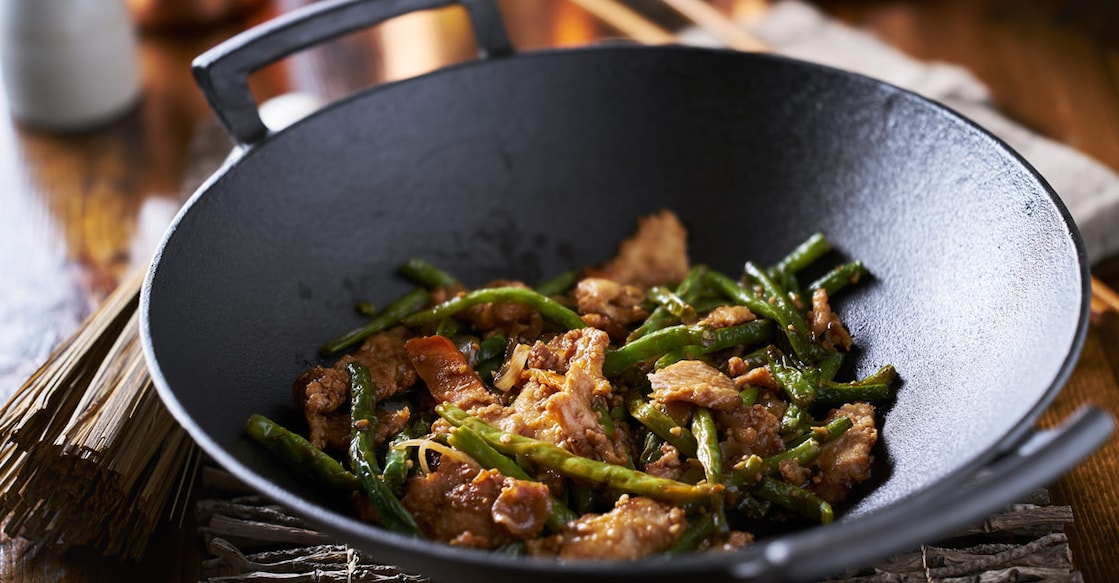Should you switch to iron cookware if you’re anaemic? Here’s how to use it right

Mail This Article
If you've ever been told you're low on iron, you've likely heard that cooking in an iron wok or skillet can help. This advice isn't just traditional wisdom. There's growing research that supports the idea that iron cookware can increase iron content in food and improve hemoglobin levels over time.
But does this mean you should rush out and buy an iron wok the minute you're diagnosed with anaemia? Not exactly. Here's what you should know.
Iron cookware can boost iron intake, especially when cooking acidic, moist foods over time. A systematic review of 13 studies found that cooking with iron pots or ingots often increases hemoglobin levels and dietary iron intake—though the effect varies by food type and frequency. One controlled trial in young children in Ethiopia showed a 1.3 g/dL greater haemoglobin increase after one year of eating food cooked in iron pots versus aluminium. Another pilot study in preschoolers found a near 8 % rise in haemoglobin after four months of eating snacks cooked in iron pots .
Cooking acidic foods (like tomato- or tamarind-based dishes) leaches more iron into the food. Plain foods or highly seasoned pans release less.
But like anything in the kitchen, it works best when you use it right. Here’s what to know:
What’s good about cooking in an iron wok
1. It can increase your iron intake
Especially helpful for those with mild iron deficiency. Foods cooked in iron, particularly wet and acidic dishes, absorb a small but beneficial amount of iron.
2. It retains heat beautifully
Iron woks get hot and stay hot. That’s great for stir-fries, searing, or anything that needs high, even heat.
3. It’s naturally non-stick when seasoned well
With regular use and proper oiling, an iron wok develops a natural coating that reduces the need for synthetic non-stick pans.
What to take care of
1. Season your wok
When new, an iron wok needs to be seasoned. That means heating it, applying oil, and repeating the process until a dark coating forms. This helps prevent rust and improves performance.
2. Dry immediately after washing
Never soak or leave it wet. Always dry thoroughly, ideally over heat, and apply a light coat of oil before storing.
3. Avoid dish soap
Scrub with hot water and a brush. Soap can strip the seasoning. If you must use soap, re-oil afterwards.
4. Cook acidic foods occasionally, not always
While acidic ingredients help release iron, cooking them too often can strip the wok’s seasoning layer. Balance them out with dry or neutral dishes.
What to avoid
Don’t use it for storage. Never leave food in the wok overnight. Moisture + iron = rust.
Don’t let it stay idle. The more you cook with it, the better it performs. A neglected wok will rust fast.
Don’t expect it to look shiny. A well-used wok should look dark, even blackened. That’s a good sign.

